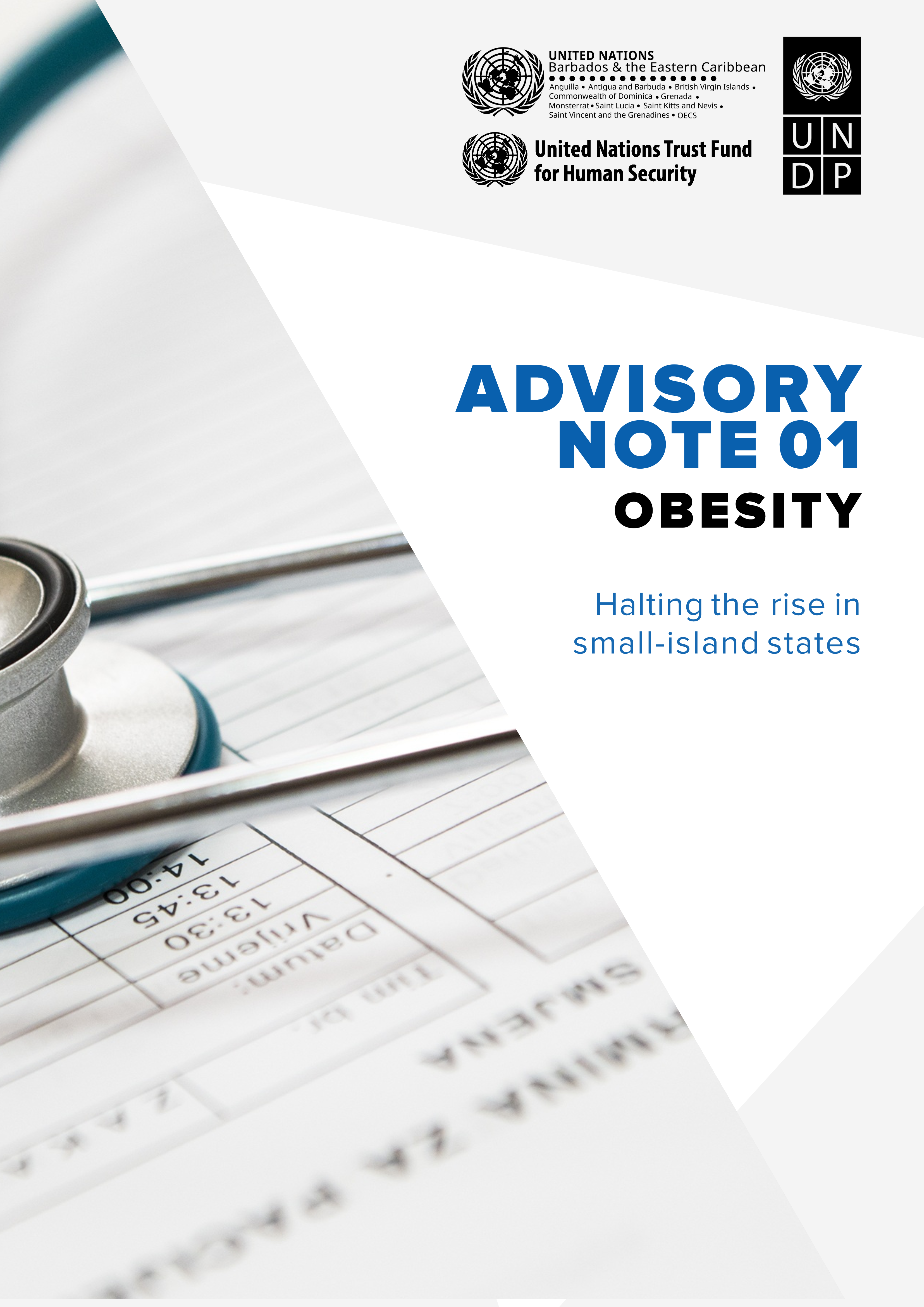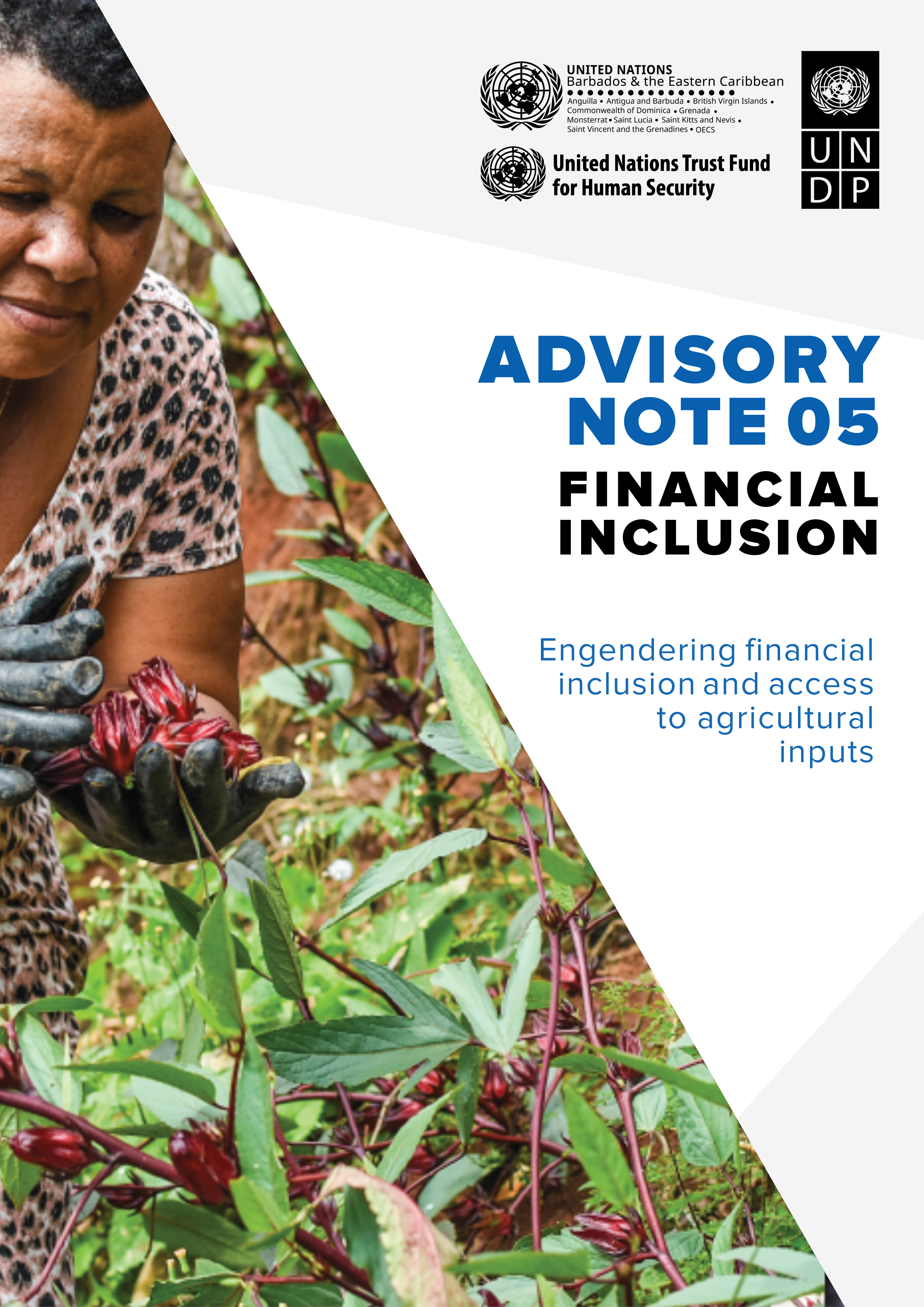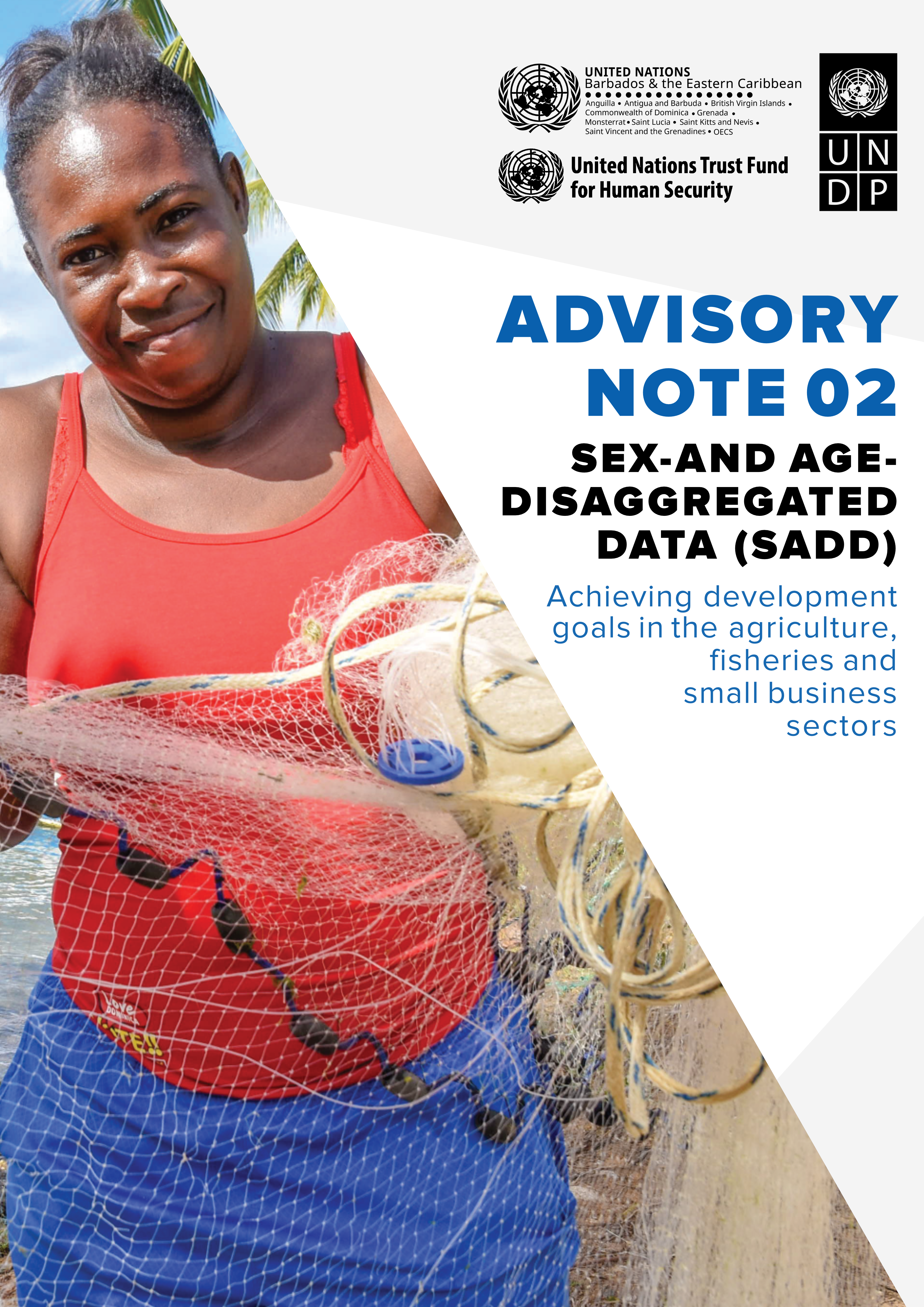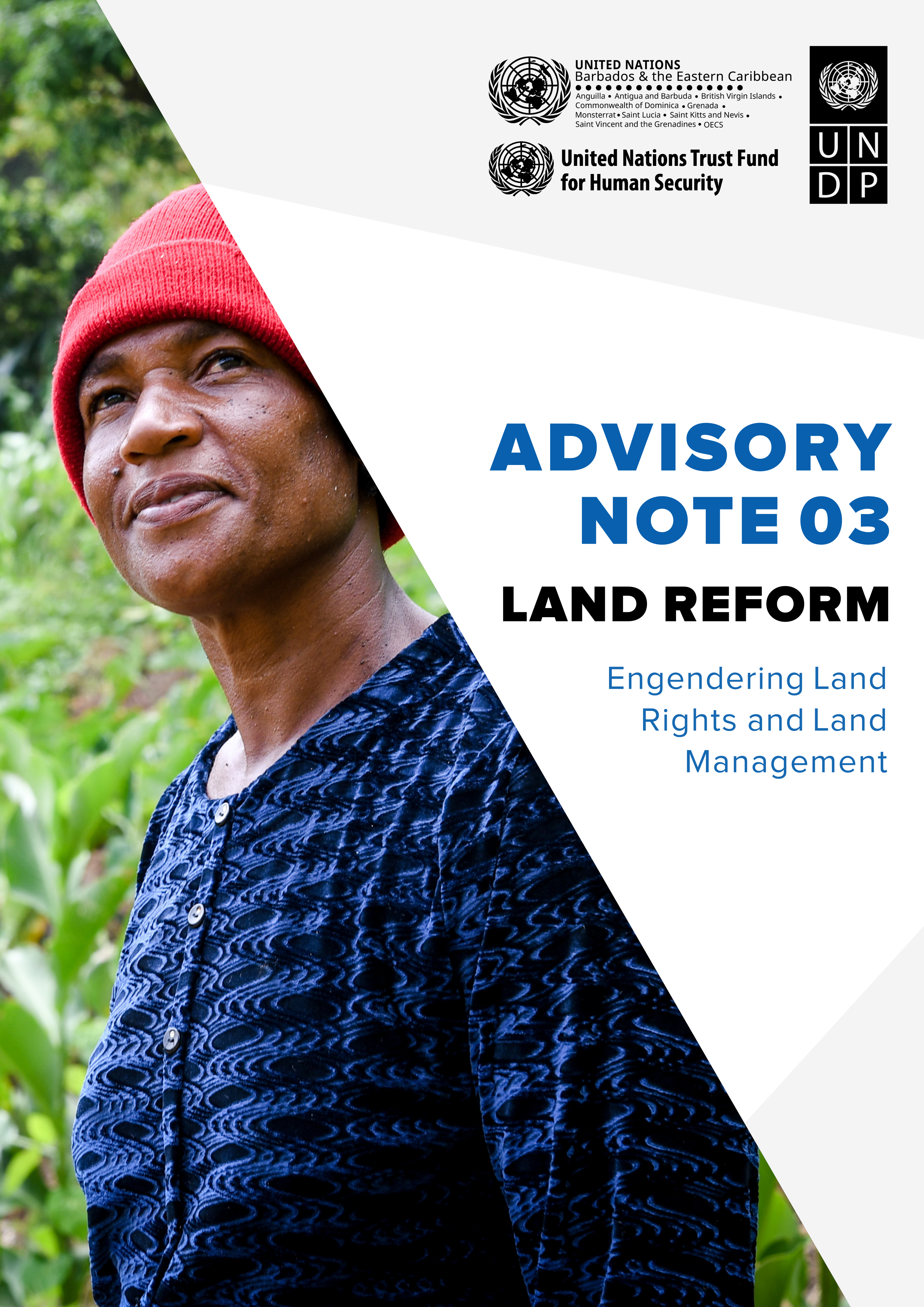Building Effective Resilience for Human Security in the Caribbean
Gender Responsive Evaluation of the Impact of Relevant National Policies on Small Holder Farmers, Fisherfolk and Small Business Entrepreneurs in Five Caribbean Islands
Overview
This Report presents the results of a gender-responsive evaluation of the Impact of Relevant National Policies on Small Holder Famers, Fisher folks and Small Business Entrepreneurs in five (5) Caribbean Islands: Antigua and Barbuda, Barbados, Dominica, Grenada, and St. Lucia. It represents an important deliverable of a Consultancy entitled: Gender Responsive Evaluation of the Impact of Structural Adjustment Programmes and Relevant National Policies on Small Holder Famers, Fisherfolks and Small Business Entrepreneurs in five (5) Caribbean Islands. The Consultancy, in turn, is a critical component of the Project entitled: Building Effective Resilience for Human Security in the Caribbean Countries: The Imperative of Gender Equality and Women Empowerment in a Strengthened Agriculture and related Agri/Fisheries Small Business Sector.
Gender Responsive Evaluation of the Impact of Structural Adjustment Programmes on Small Holder Farmers, Fisherfolk and Small Business Entrepreneurs in Five Caribbean Islands
Overview
This document presents the findings of a gender-responsive evaluation of the Impact of Structural Adjustment Programmes (SAPs) - Policies, Proposals and Plans - on Small Holder Famers, Fisherfolk and Small Business Entrepreneurs in five (5) Caribbean Islands: Antigua and Barbuda, Barbados, Dominica, Grenada, and St. Lucia. The Report represents an important deliverable of a Consultancy entitled: Gender Responsive Evaluation of the Impact of Structural Adjustment Programmes and relevant National Policies on Small Holder Famers, Fisherfolk and Small Business Entrepreneurs in five (5) Caribbean Islands. The Consultancy, in turn, is a critical component of the Project entitled: Building Effective Resilience for Human Security in the Caribbean Countries: The Imperative of Gender Equality and Women Empowerment in a Strengthened Agriculture (and related Agri/Fisheries) Small Business Sector.
RECOMMENDED ADVOCACY INITIATIVES IN RELATION TO THE IMPACT OF POLICIES AND PROGRAMMES ON NON-STATE ACTORS IN THE AGRICULTURE SECTOR
As part of the gender-responsive study on the impact of structural adjustment programmes and policies on the agriculture sector in Antigua and Barbuda, Barbados, Dominica, Grenada, and Saint Lucia, recommended Advocacy Initiatives were developed, focusing on the involvement of non-state actors in the agriculture sector. These initiatives zoomed in on issues such as: sex and age disaggregated data (SADD), gender-budgeting, nutrition, accessibility of productive resources and gender dimensions in value chain development. The document aims to identify initiatives and strategies which can be employed to tackle issues facing small and women farmers in the Eastern Caribbean.

 Locations
Locations










